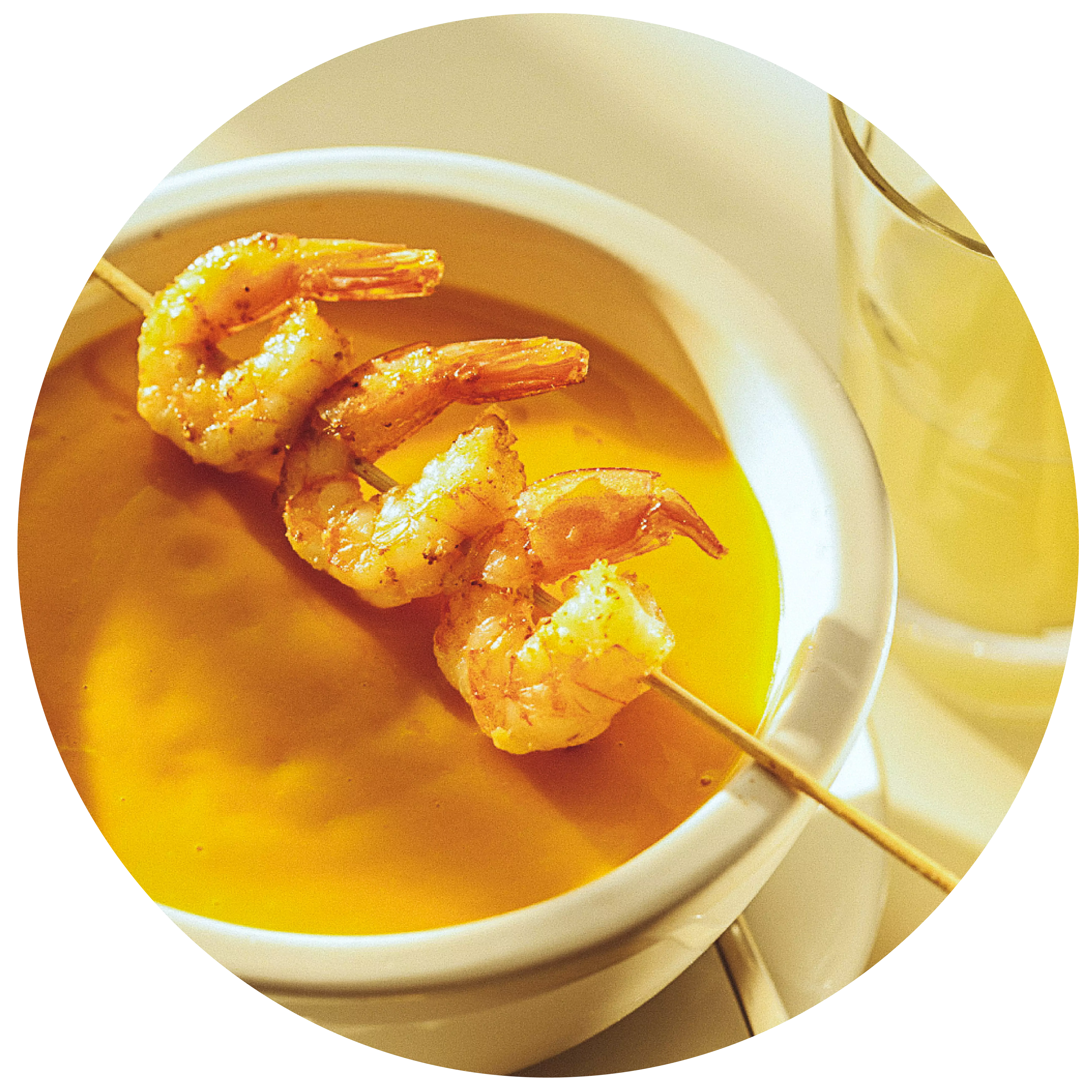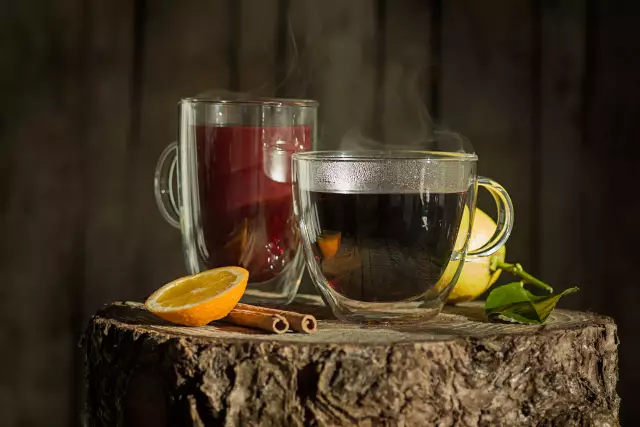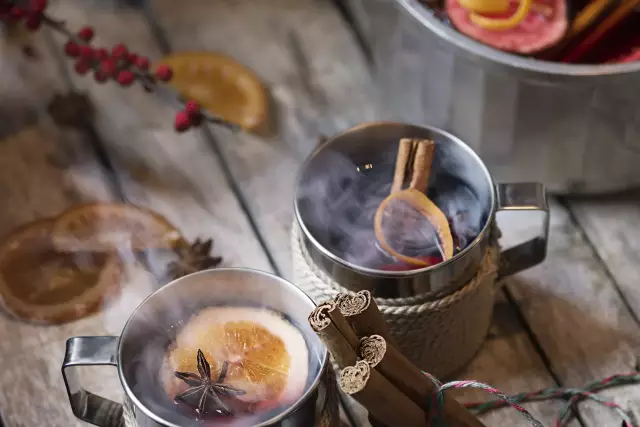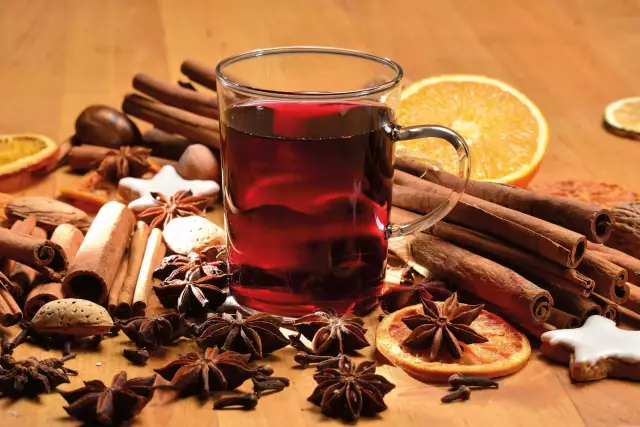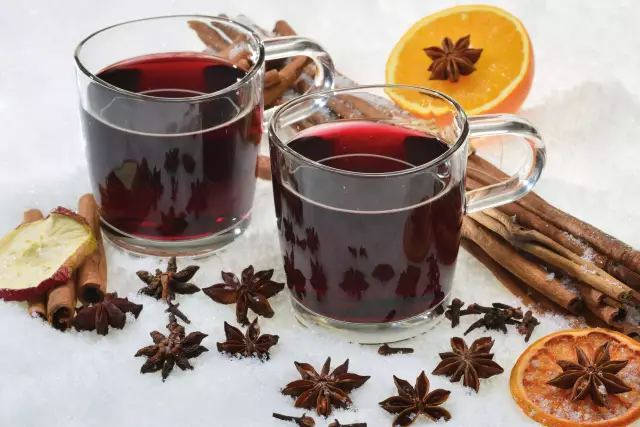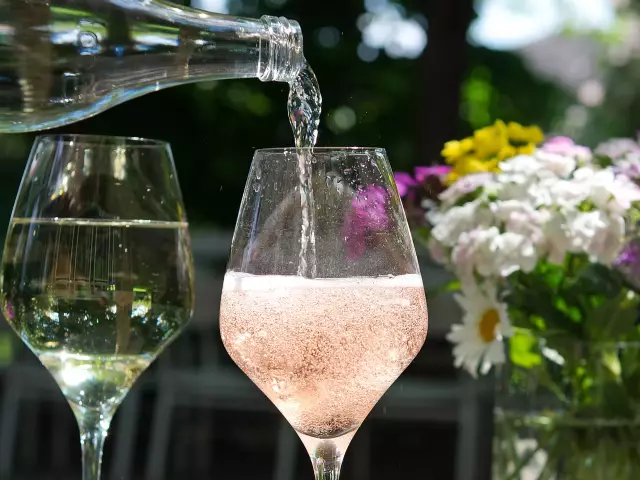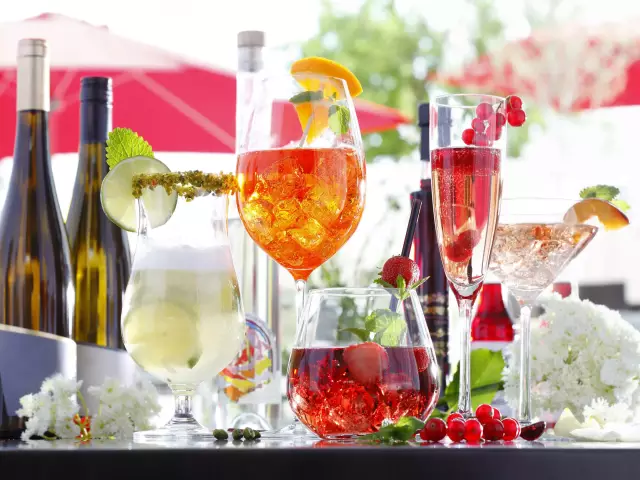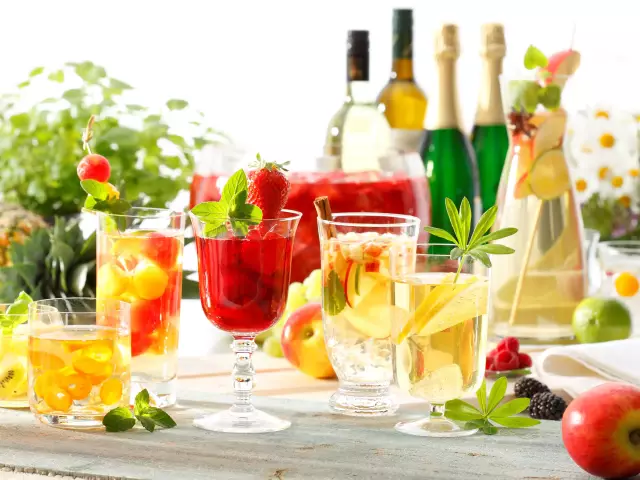Mulled Wine
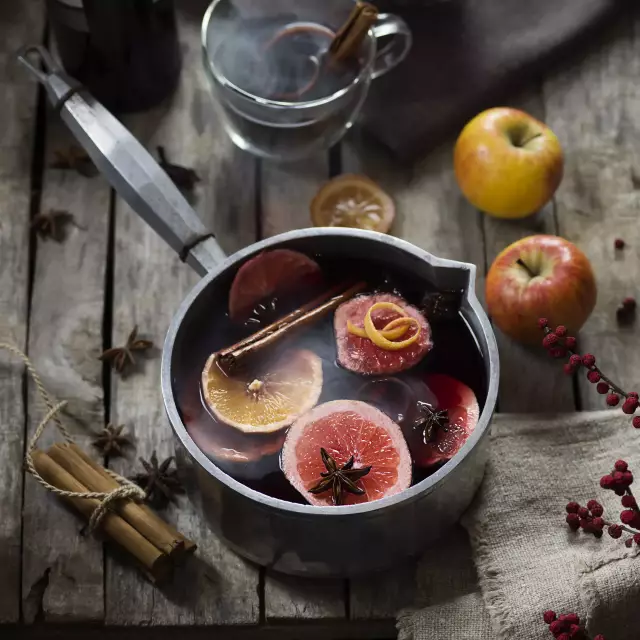
The adding of spices to wine has a very long tradition in the world of wine. The Romans already flavoured some of their wine with sugar and spices to make it more pleasurable and longer lasting.
Facts
-
7 - 14,5
alcohol content by volume
-
from 78°C
heat causes the alcohol to escape
More and more German winegrowers offer home-made mulled wine based on individual recipes partly in organic quality. The very fruity red wines from the German wine-growing regions are well suited for aromatic mulled wine. By warming the wine, the aromas, which are reminiscent of red fruit, become even more expressive and are wonderfully harmonious in combination with the flavouring ingredients. White mulled wines, made from Riesling or Müller-Thurgau for example, are also on offer.
Since 2022, rosé mulled wine may finally be marketed as such by name. A new specification in the EU regulation now allows this. In terms of wine law, mulled wine is a flavoured beverage containing wine, made exclusively from red, rosé or white wine and sweetened and flavoured. The addition of alcohol as well as water or colouring is prohibited. The actual alcohol content must be at least 7% vol. and less than 14.5% vol.
Warming
When warming the mulled wine you should make sure not to heat it too much or even let it simmer, as otherwise delicate fruit aromas will be lost and bitter agents will develop. Additionally, from a temperature of 78°C, alcohol will evaporate.
Flavouring
Don’t add too many spices all at once, and only little amounts. Too many cloves spoil the mulled wine. Cinnamon, star anise and allspice in too large amounts can cover the fruity aromas of the wine as well. Sweeten cautiously. If you are already using a semi-sweet wine, you often don’t need much sugar or honey.
Pay attention to quality
Make sure to use fresh spices and a quality wine. Designations such as "Winzer-Glühwein" (vintner’s mulled wine), or "Weingut" (wine estate) on the label guarantee that the mulled wine was made only from the producers‘ own wines and on their own premises. The designation "Deutscher Glühwein" (German mulled wine) on the label means that only domestic base wines were used.
Have enough time at hand
After the first warming let the mulled wine steep for a few hours, maybe even over night, so that the aromas can fully unfold. Then use a sieve to remove the spices for better enjoyment.
Drink in moderation
You will have the greatest pleasure if you use high-quality ingredients and drink mulled wine in moderation.
Recipe tips
Recipe ideas for dishes to go with mulled wine in the DWI Genießershop: shop.deutscheweine.de
Does mulled wine always have to be red wine?
No! For some years now, white mulled wines have also been in greater demand. As a new trend, fruity rosé mulled wines have also developed as a light counterpart to the heavy red wines.
Varietals

(artificial potted meat) in the style of the house "Kunschthäwwelfläsch"
(artificial potted meat) in the style of the house
- 1 kg Schweinekamm
- 2-3 ganze Zwiebeln
- nach Belieben Lorbeerblätter, ganze Nelken, gemahlener Kümmel, Pfefferkörner
- 500 ml Rivaner oder Silvaner
- nach Geschmack Salz & Pfeffer
A few days before preparation, have a piece of pork neck picked up from the butcher. Alternatively, salt and pepper the pork neck yourself before preparation. The day before, cut into the pork neck with a sharp knife at a distance of approx. 1.5 cm, but do not cut all the way through.
Peel 2-3 onions, halve and cut into rings. Prepare the bay leaves, cloves, caraway seeds and pepper. Place a few slices of onion, a clove, some ground cloves and pepper in the incisions and a bay leaf in every other incision. Place the remaining onions, one or two cloves and a bay leaf in a large roasting tube, place the meat on top and pour in the white wine. Close the roasting tube tightly and leave the meat to marinate overnight in the fridge.
Then place the roasting tube on the cold oven rack and cook for approx. 1½ to 2 hours at 200 °C (gas mark 4, fan oven 180 °C).
- Müller-Thurgau (halbtrocken & feinherb)
- Silvaner (halbtrocken & feinherb)
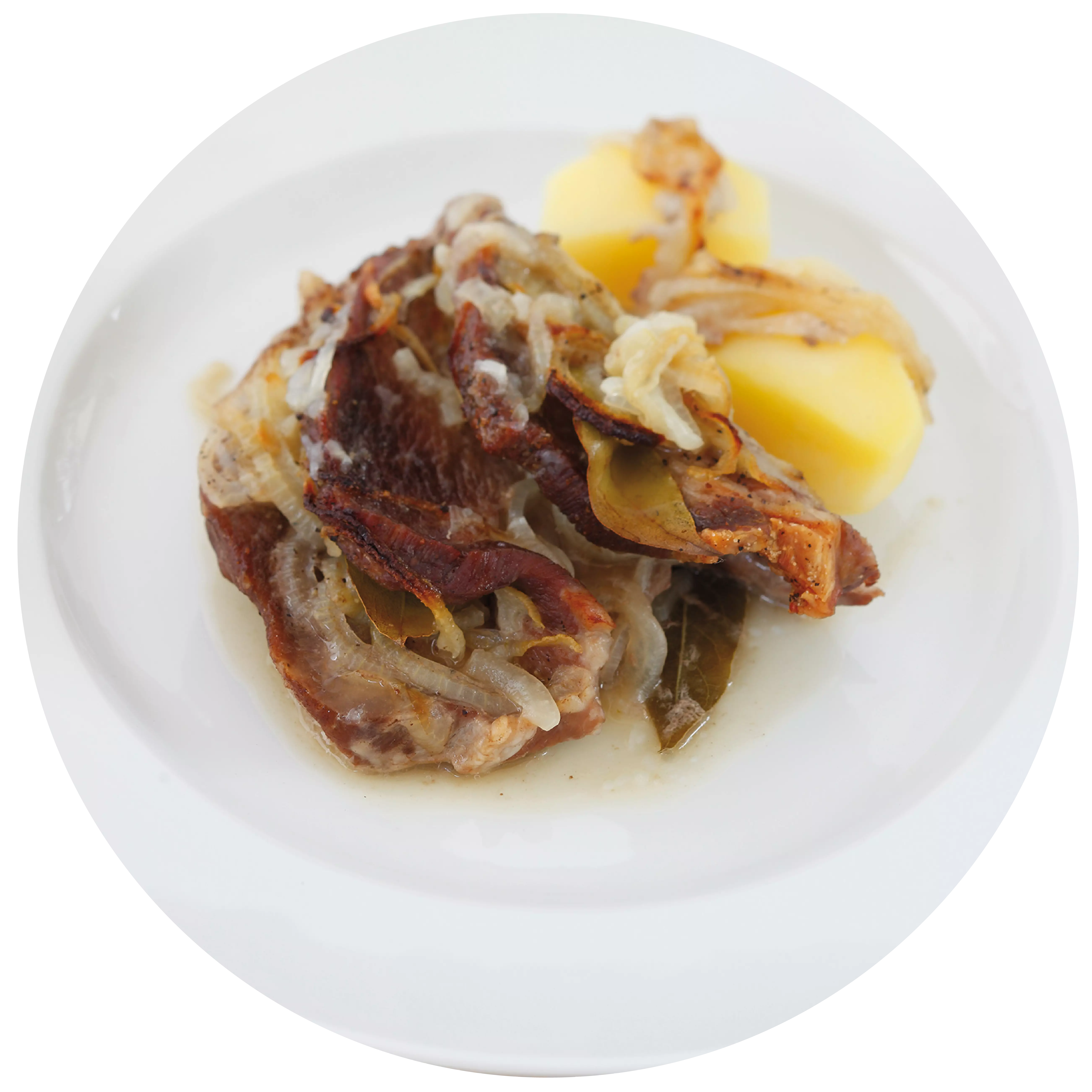
with blueberries Banana and parsley waffles
with blueberries
- 25 Gramm glatte Petersilie
- 200 ml Milch
- 2 Eier Größe L
- 70 Gramm Zucker
- 1 Päckchen Vanillezucker
- 100 ml Öl
- 75 Gramm Naturjoghurt
- nach Belieben Butterschmalz oder Pfannenfett
- 300 ml Sahne
- 1 halbe Vanilleschote
- 2,5 EL Puderzucker
- 500 Gramm Blaubeeren
- 100 ml weißer Traubensaft
- 250 Gramm Mehl
- 1 TL Backpulver
- 200 Gramm überreife Bananen
- eine Prise Meersalz
Dough:
Mix the flour, 1 pinch of salt and baking powder in a bowl and set aside.
Blend the bananas and parsley with 100 ml milk to a fine puree. Put to one side.
Separate the eggs. Mix the egg yolks with 20 g sugar, vanilla sugar, oil and banana puree until smooth. Stir in the flour mixture, milk and yoghurt with a whisk.
Beat the egg whites with 1 pinch of salt and the remaining sugar until stiff. Fold the beaten egg whites into the batter.
Topping:
Whip the cream with the seeds from the vanilla pod and 1.5 tbsp icing sugar until creamy (not too stiff!). Leave to cool.
Heat a large pan, lightly caramelise 1 tbsp of icing sugar, add the blueberries and toss briefly, deglaze with the grape juice and allow to reduce briefly.
Preheat the waffle iron and melt the clarified butter. Brush the waffle iron with a little clarified butter, ladle in the batter in batches and bake until golden brown. Serve with the topping.
- Scheurebe (süß & edelsüß)
- Silvaner (süß & edelsüß)
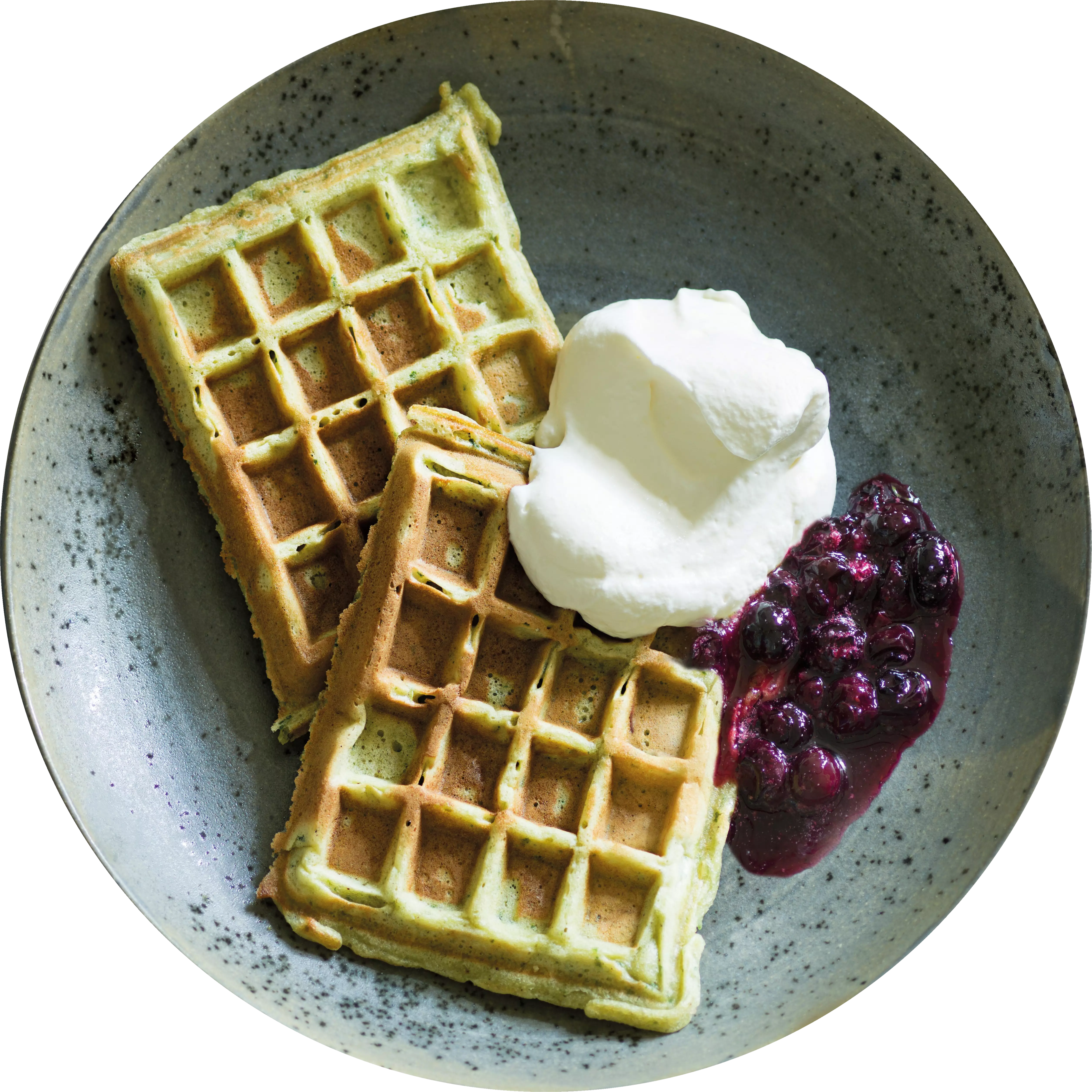
with semi-dry wines Flädlesuppe
with semi-dry wines
- 1 Bund Schnittlauch
- 1 Liter Fleischbrühe
- 150 Gramm Weizenmehl
- 300 ml Milch
- nach Belieben Speckschwarte zum ausreiben der Pflanne
- Etwas Salz
Make a smooth, not too thick batter from the flour, milk, eggs and a pinch of salt. Heat a heavy frying pan on a high heat, rub with bacon fat, pour in a small dollop of batter, allow to spread and fry thin pancakes (flädle).
<p
<p>Leave the pancakes to cool, halve and cut into thin strips.
Place in clear, very hot meat stock and serve immediately.
<p- Trollinger (halbtrocken & feinherb)
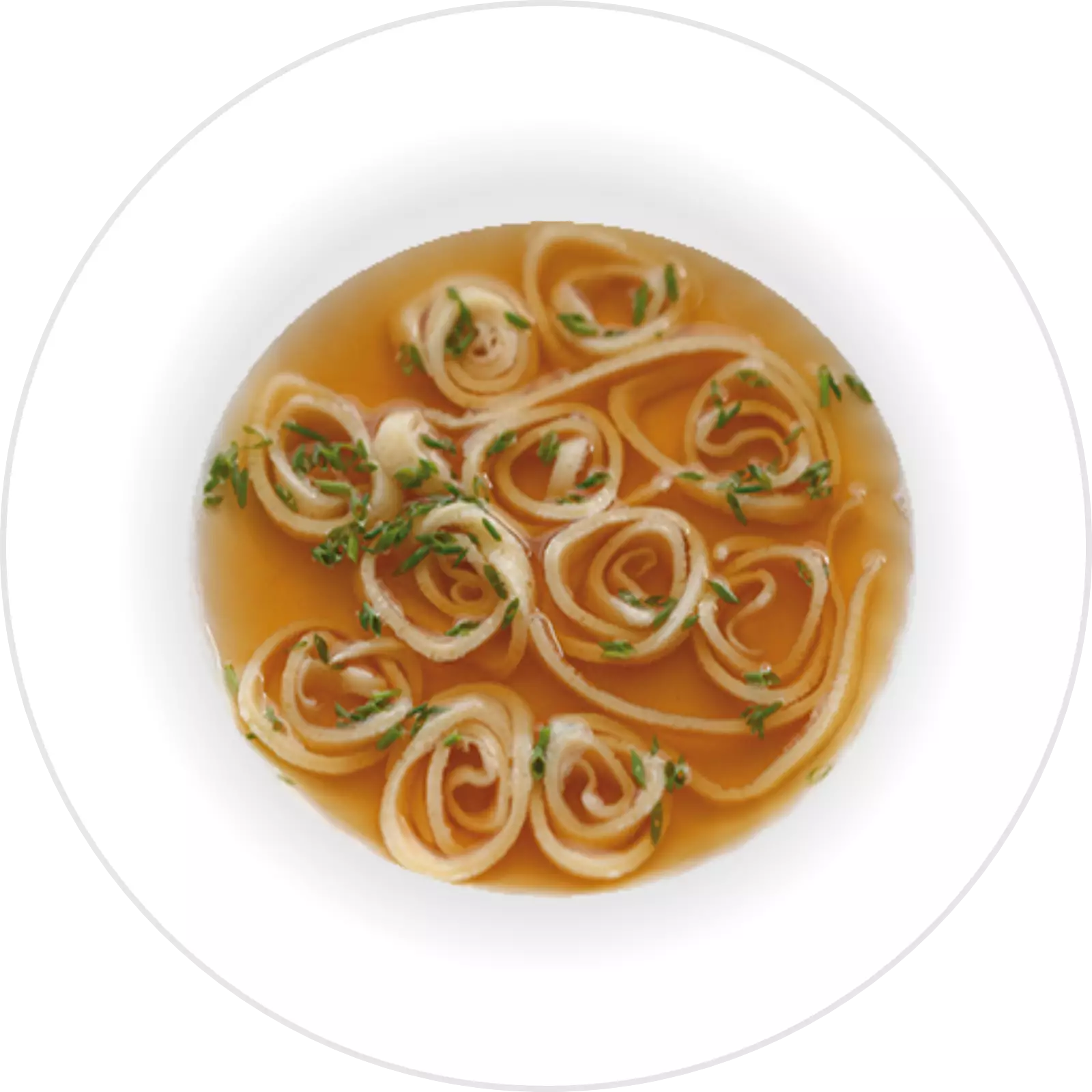
with shrimps Pumpkin soup
with shrimps
- 1 kleiner Hokkaido-Kürbis
- 1 Zwiebel
- 5 cm Ingwer
- 2 EL Butter
- 750 ml Gemüsebrühe
- 300 ml Kokosmilch
- 12 mittelgroße Shrimps
- 2 EL Olivenöl
- Eine Prise Salz & Pfeffer
Peel and dice the pumpkin, onion and ginger and sauté in the butter.
Deglaze with the vegetable stock and sauté for about 15 to 20 minutes until soft.
Sauté the shrimps in a little olive oil and leave to cook over a low heat for a few minutes. Place on wooden skewers and keep warm in aluminium foil.
When the vegetables have been steamed until soft, blend finely with a hand blender. Stir in the coconut milk and season with salt and pepper to taste.
Serve the soup in large cups and garnish with the shrimp skewers.
Freshly baked white bread goes well with this.
- Muskateller (halbtrocken & feinherb)
- Federweißer (brut nature)
